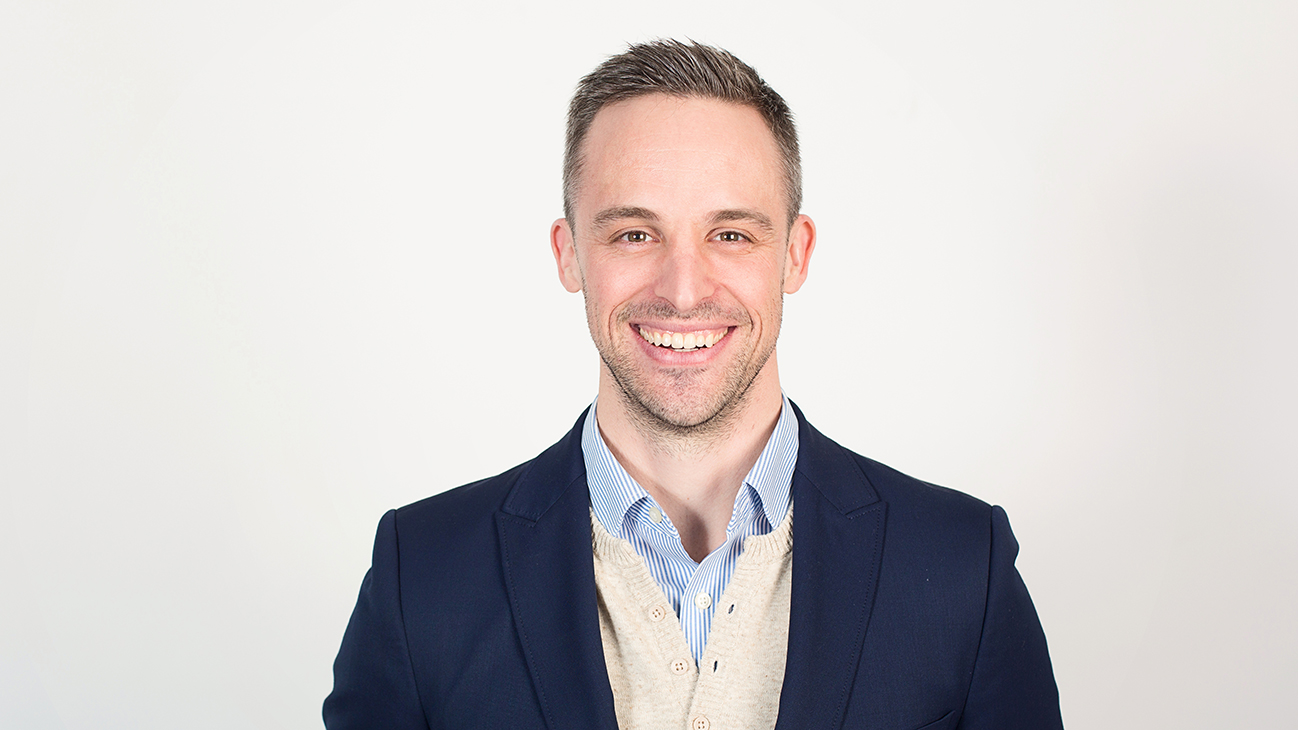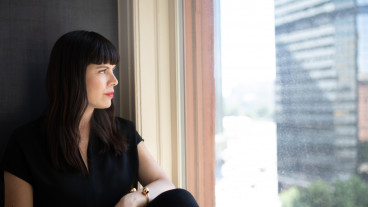This isn’t my first storm. In August 2006, I spent a full night at 6000m altitude in Kyrgyzstan on all fours, spread to the four corners of my tent trying to hold it down so that I wouldn’t get blown off the mountain.
On a different expedition scaling Mount Everest, I was radioed that two of my teammates had turned around while I was standing next to a frozen body.
My run across Canada wasn’t a breeze either — 180 marathons in nine months is hard and it hurts like hell from the second marathon.
Over the years, as an endurance athlete, I’ve experienced first-hand that while no crisis is pleasant, if we willingly choose to lean into adversity from time to time, it becomes easier to deal with the struggles that hit us from behind. Here’s how I learned to be resilient and adapt in order to thrive in new environments before, during, and after a storm.
Don’t Make Linear Plans
The easiest thing to do is to set a goal. It takes a minute and we all do it on January 1. The problem is that too often our strategy to achieve our goals resembles a straight line — five simple steps to the goal. Unfortunately, our simple-step plan rarely includes something like: “Step #4: Something terribly wrong will happen”.
Resiliency isn’t just how we overcome challenges; It is also how we anticipate them and plan contingencies. When we successfully plan for the unknown, our response to it is more advised, prepared, and focused on solutions. In other words, to be resilient is to prepare for the most predictable part of any journey — the obstacles, the disappointments, and, occasionally, sheer sadness.
Welcome, Don’t Overcome
My initial reaction when I was diagnosed with type 1 diabetes, the most severe form of the disease, was to fight. I wanted to win and to be stronger than my disease. I became obsessed about measuring my blood glucose and fanatical with all best practices. Predictably, my diabetes management was exemplary, but rooming with your worst enemy turns out to be an exhausting way to live.
Resilience is to welcome, not to overcome — it’s acceptance. With acceptance, my condition became my greatest ally. When I became open to receive what it could teach me, it helped me to grow and turned into a massive advantage. It helped me to acquire the discipline and the structure necessary to accomplish major athletic feats.
Resilience is Built Before a Crisis
“Happiness is in consented effort”. This is my favourite quote. Resilient individuals and organizations consistently consent to effort, whether there is a crisis or not. They find joy in complexity, pleasure in challenges, gratification in hard work. Along the way, they harvest the belief that no matter how difficult things get, they will always find a way to rise above the clouds. Their culture is also centered on learning and on the journey, not just on the simple pleasure of the finish line. Resilience is a muscle. It is not an object we acquire; it is a craft we commit to.
Save Your Energy
Endurance racing is a depletion process. It is the planning of resources vs. time and miles. While the beginning of a crisis demands quick response, afterwards it’s necessary to set the right pace. Confinement and its challenges, as well as the economic recovery that will follow, will be a marathon.
From emergency to relaunch, we must now plan our energy and resources to win the long game. Beware of those who sprint too early! The victory will go to the organizations that take measured steps with calm, consistency, and strategy.
The Size of Your Toolbox Matters
You cannot outsmart a mountain. Despite all of our preparation, our journeys never seem to happen quite the way we imagine them. But extensive preparation allows us to show up with a much larger toolbox. This is resiliency — investing time in growing your knowledge to be able to solve bigger problems.
Experience and resilience, this what you build through failure so be thankful for your past mistakes.
Resilience is Patience
Because you can’t see the summit at this immediate moment doesn’t mean it is gone. Resilience doesn’t give up because it cannot have what it wants right now. Know that the ascent of Mount Everest is a two-month process that involves more waiting than climbing. During a storm, be patient and stay focused on your why and on your intentions, because that is the ultimate fuel.
Adapt, Don’t Overreact
During a crisis you must adapt, period. That being said, you do not want to make things worse by overreacting. This is the reason why if you are ever lost in the wilderness, search and rescue experts advise you to stay in one place until help arrives. Deal with the real, current problems; prepare for the ones that are realistically foreseeable; and fight hard not to create new ones in your head.
If you are in a leadership position, it is your responsibility to make sure your people are safe, mentally and physically. This can be achieved by quickly addressing and solving immediate problems, providing direction, and inspiring your team to stay focused on the long-term goal. In other words, providing the right mix of reassurance, safety, and vision.
All of my big athletic achievements started with a commitment to a complex journey mined with uncertainty and challenges. I did not always succeed, but I gained a lot of resilience over the years.
Resilience is delayed gratification. It is sweating now and getting a reward later. Go from urgency to relaunch with this very simple question: what must I do now to win in the new normal, post-COVID-19?
Soon we will be back to our regular busyness, trying to make up for our losses. As our collective memory tends to be short, let’s be cautious. To be resilient also means to put in place the systems and the structures necessary to support new processes and best practices.
Sébastien Sasseville empowers leaders to lead with purpose and inspires organizations to embrace change. An endurance athlete, his extraordinary accomplishments — which include summiting Mount Everest, completing the mythical Sahara race, and running across Canada — are made even more impressive by the fact that he lives with Type 1 Diabetes.
Having held diverse sales roles in several Fortune 500 companies, Sébastien marries his extensive business experience with his inspirational achievements to deliver dynamic messaging on change management, leadership, and teamwork.




